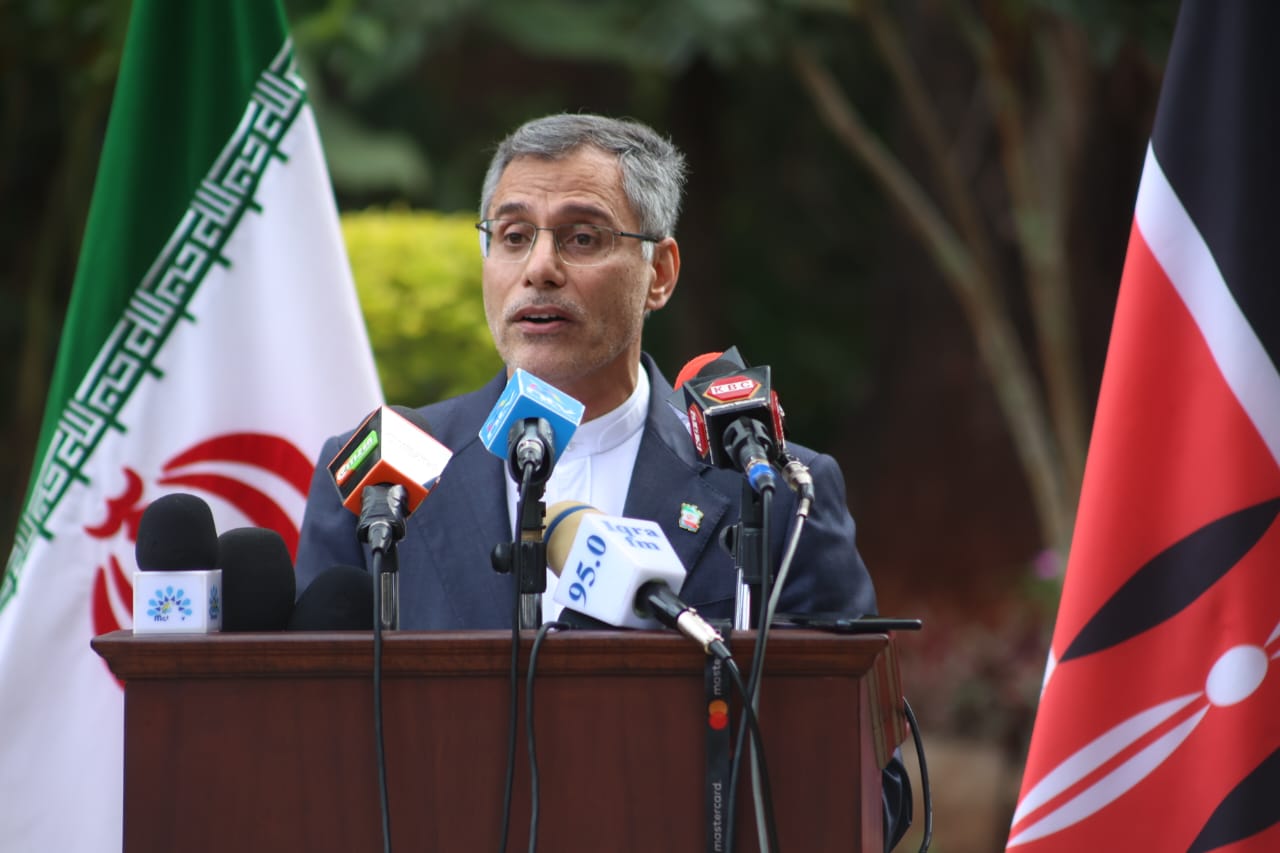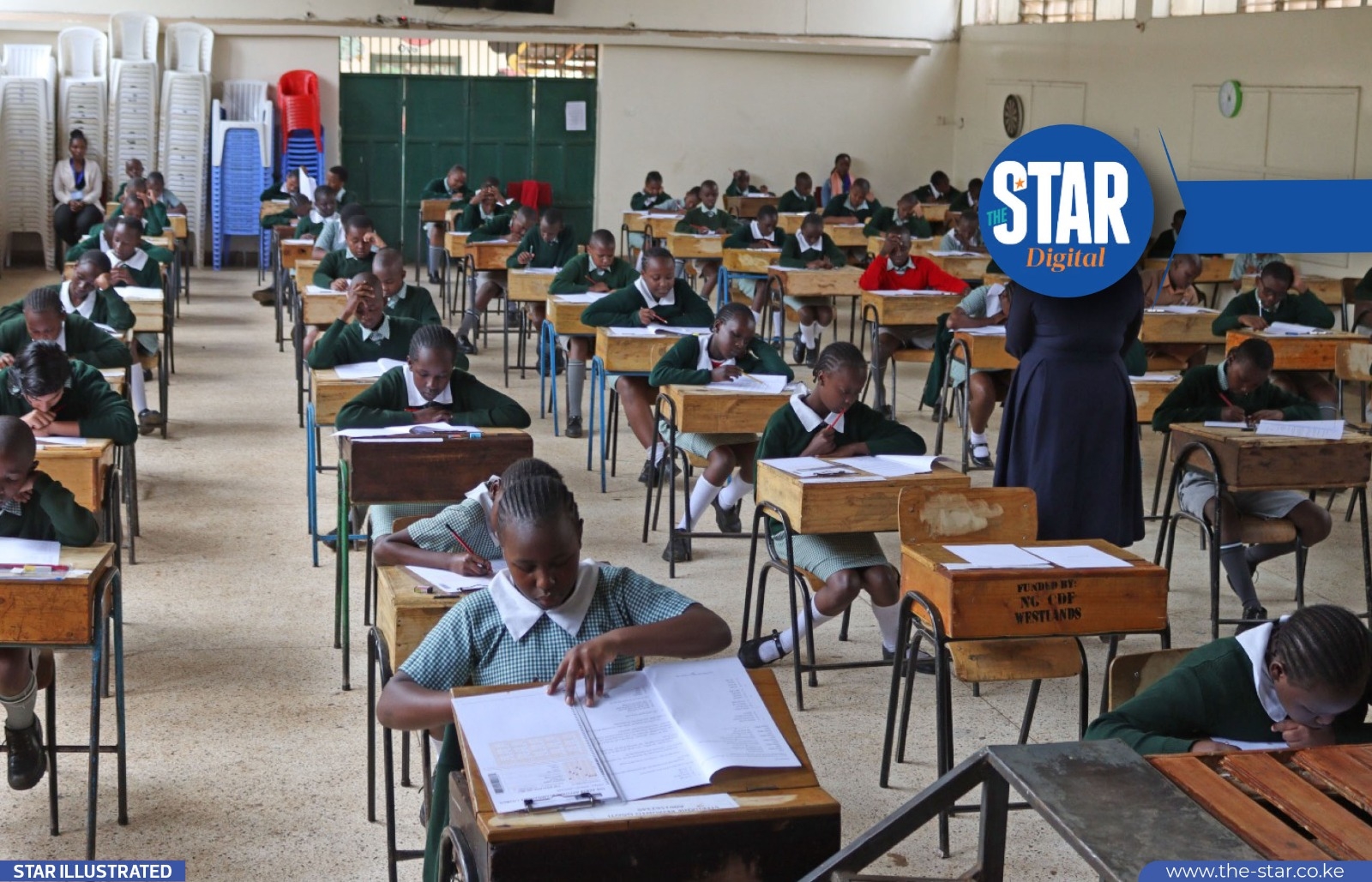 Iranian Ambassador to Kenya Ali Gholampour addresses the media in Nairobi on June 23, 2025/ELIUD KIBII
Iranian Ambassador to Kenya Ali Gholampour addresses the media in Nairobi on June 23, 2025/ELIUD KIBII
Iranian Ambassador to Kenya Ali Gholampour on Monday said war
will have “a very negative impact” on the talks and “would prolong the challenges
that exist”.
“And I hope that very soon, of course, by the help and by the position that your government will take, a window of opportunity will remain open for not only the continuation of the business between the two countries, but also for increasing it at its desired level,"
"First, as a responsible country, as all other countries in the international community, they have the responsibility to react, to condemn first these atrocities, these invasions, acts of aggression, ” the envoy told a media conference,
appearing to set a condition for the resumption of those talks.
Iran is a key destination for Kenyan tea, with exports
valued at Sh5.98 billion in 2023.
However, this trade was disrupted by a ban following a Sh168
billion scandal involving the export of substandard tea.
This has been exacerbated by the export ban to Sudan
following the severing of diplomatic relations over alleged support for the Rapid
Support Forces.
However, Agriculture CS Mutahi Kagwe had in recent months
made efforts to negotiate the lifting of the ban by Iran.
On April 16, Kagwe met Iranian business groups to deliberate
on lifting the ban.
“Reopening access to Iran’s robust market could be a game
changer for tea farmers and the entire tea value chain,” the Agriculture
Ministry said in a statement.
In February, CS Kagwe also met Ambassador Gholampour, where
the issues featured heavily, with discussions centred on resolving challenges
in tea exports and livestock logistics.
Following the meeting, the Iranian embassy noted that despite
existing barriers, both sides expressed commitment to overcoming challenges in
tea exports and livestock logistics.
“Key discussions revolved around streamlining processes,
addressing regulatory hurdles, and enhancing market access for Kenyan products.
These efforts set the stage for stronger trade cooperation ahead of the
Kenya-Iran Joint Cooperation Commission (JCC) scheduled for May 2025. By
resolving bottlenecks and fostering collaboration, Kenya and Iran are paving
the way for a more robust and mutually beneficial trade relationship,” they
said.
While a breakthrough was yet to be made on the tea ban, the two
states in February signed a trade deal to export 50 metric tonnes of beef.
However, the envoy informed that the trade had been grounded
by the war, inasmuch as “all the precautionary and the contingencies have been
put in place to reduce the impact”.
“Now there is no flight between the two countries and our
businessmen who are based in Kenya are stranded here. There is no flight that means
meat cannot be exported and all the producers and exporters are heavily
impacted since they have lost their opportunity to export and to make income
and to keep their business alive,” Ambassador Gholampour said.
At the same time, the envoy condemned Israel’s “unprovoked
and premeditated” attack on Iran.
The ambassador said Israel was deliberately attacking
civilian-populated areas in multiple large cities of Iran where millions of
people reside.
Additionally, he said Tel Aviv is targeting Iranian senior
officials, women, children, including babies and toddlers.
“Scientists, university professors, students, physicians,
artists, and athletes were killed in cold blood overnight, while asleep in
their homes. In some cases, an entire family was killed. Since June 13, 2025,
the regime has killed hundreds of civilians and injured more than a thousand,”
he said.
As of Sunday, the envoy said more than 550 people had been
killed, a number that is changed due to the “indiscriminate” attacks.
He added that attacks by Israel and the US on nuclear sites under the safeguards and monitoring of (International Atomic Energy Agency, IAEA) pose formidable risks of release of radioactive material and risks to the civilian population and the environment.
The crimes and acts of aggression, jointly with the US and separately, constitute gross violations of international law and the very purpose and principles of the charter of the United Nations in particular sovereignty, territorial integrity, and the prohibition of the threat or use of force enshrined therein and threatens international peace and security, he said.
















